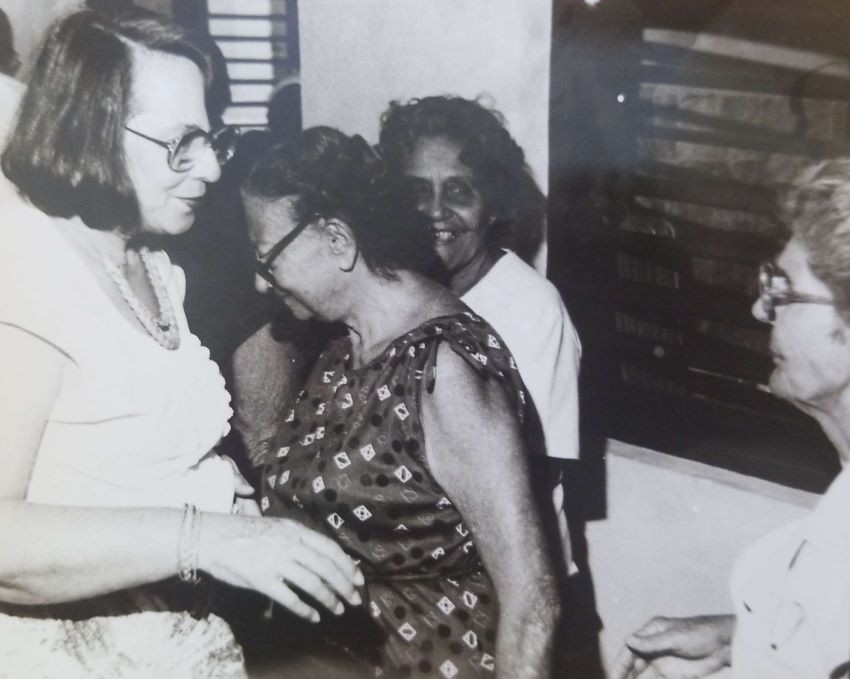
On the occasion of the 60th anniversary of the Federation of Cuban Women (FMC), the federated of Las Tunas retraced the route of Vilma in the province. They treasure living history that still springs from those who knew her.
She searches somewhere in her vague memory and the events of that May 5th, 29 years ago, are still there, like a sepia movie. She no longer remembers if the morning light bathed her face if a warm breeze came up...; perhaps the first downpour of the season snuck in uninvited into the land. But she carries Vilma's image intact; it would be the only time she would have her so close, within reach of her doubts.
Chaparra was then a small town hit by the harshness of the Special Period, where the aspirations to move forward with agricultural plans were evident in the wet backs of its guajiros. The female faces, also attached to the furrow and an amalgamation of pawns, were preparing to receive the president of the Federation of Cuban Women (FMC) in the territory.
"My mother, several days before, had begun to talk about the matter. She was the secretary of the FMC in the municipality. That morning she announced what we already suspected: Vilma Espín Guillois is among us, in Chaparra."
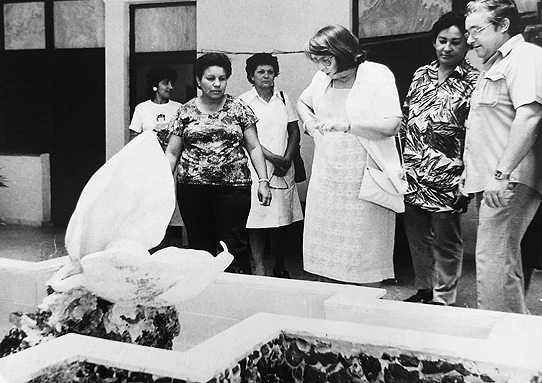 At 46 years of age, Blanca Iris Peña Ruedas, Preschool Education Methodologist at "Jesús Menéndez", is lost in the nostalgia of the visit that marked her youthful days and inherited from her in different ways a conviction that she believes: "The strength of women comes from within."
At 46 years of age, Blanca Iris Peña Ruedas, Preschool Education Methodologist at "Jesús Menéndez", is lost in the nostalgia of the visit that marked her youthful days and inherited from her in different ways a conviction that she believes: "The strength of women comes from within."
"I remember that the route included various exchanges with federated women incorporated into various spheres of society", Blanca recalls, "she began with the Integral Porcine number 2, with excellent achievements. By the way, its director was one of us: Enia Leyva Fajardo, a very outstanding leader."
She says that Vilma liked it very much. She praised the role of her compatriots in management positions and left as a sentence that, in the centers directed by women, the results are good.
"Something curious, during the tour, the costumes were as planned, including boots, but these were not useful to Vilma. She was a dazzling woman, tall, beautiful, who perspired elegance and her legs never fit into the rustic shoes."
In the laboratory of the wax factory at the Jesús Menéndez Sugar Mill, the highly trained industrial chemist referred to the process they were carrying out. He used numerous technicalities and did not skimp on tables and formulas to prove his point. The president of the FMC listened to him with total attention, following the rarefied course of his presentation. Those present were surprised when she began to do the calculations, claiming that he was indeed right. That day, many learned that the major federation member was also the second-largest chemical engineer in the country.
Blanca says that the next tour was based on La Torcaza vegetable plan, in the north of the territory. There, a female brigade, named Las Marianas, had the status of Vanguard in areas of banana cultivation. "The exchange was great, the agricultural workers told her about their work, the joy was appreciated, the desire to continue contributing, the accomplishments they felt for their performance and the commitment to never disappoint her."
In the afternoon, the meeting took place in the community of Lora. Grassroots leaders, activists, federated women and family members were present. The heroine was concerned about employment, cultural improvement, health, preventive work and social care.
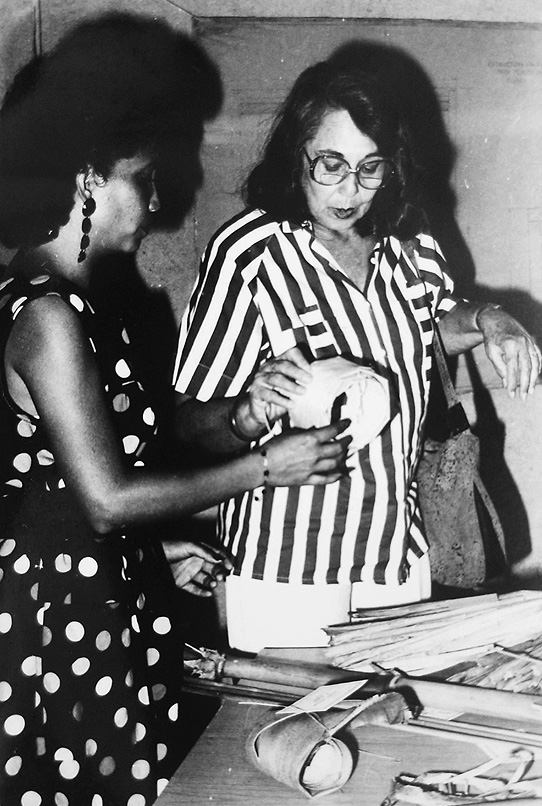 During the dialogue with the organization's relay, she was interested in their personal needs and gave the functionality of the home a primary role in society. She said that her children and grandchildren inspired her to keep up the pace of work, that her grandchildren were very affectionate, and they used to took off Raúl's hat when he came home and together they played, laughed and had a lot of fun.
During the dialogue with the organization's relay, she was interested in their personal needs and gave the functionality of the home a primary role in society. She said that her children and grandchildren inspired her to keep up the pace of work, that her grandchildren were very affectionate, and they used to took off Raúl's hat when he came home and together they played, laughed and had a lot of fun.
Blanca remembers the farewell and the weight of those words on her temple, as a commitment to be more in life, to reach as far as dreams would reach and, above all, to take care of those magical moments of growth in the family, of filial love, of dedication, because "if Vilma said it, it had to be true."
AT THE FOOT OF AN ALTAR
The typical hustle and bustle of weddings raised emotions with the news that the president of the FMC in Cuba would be at the foot of the altar. It is said that the nerves shot up and even a scattered veil had to be adjusted instantly, because that would no longer be a union of so many.
One of the residents of Las Parras, Majibacoa, assures that it was 1990 and the characteristics of the Cuban economy at that time limited the nuptial banquet to a peasant celebration, with a Creole toast, but nothing was missing either.
Another lady remembers that she will never forget that event and even, as the years went by, she regretted very much that she had not married there, under Vilma's protection. "It was historical for this little town and the face that remained of the FMC was that she was with us, in good times and bad, in work and festivities."
Five weddings took place on that day, Loraine and Jorge still celebrate their union vows. Two other couples also remain to this day. Thirty years later, in the framework of the new anniversary, a ceremony is now organized in the same place where the egregious fighter arrived in the past to wish congratulations and to transmit the message that it is better to live as a couple and to grow in numbers and affections; to tell about their grandchildren and the immense pride of having a family.
They say that on that occasion there was laughter and excitement everywhere. They say that from the marriages of that day, a shoot sprang up from which Vilma felt like her godmother. Many details have remained scattered, but people remember her jovial and attentive, present in the history of Cuba.
They keep in the community the scissors and the cushion that were used to open a handicraft workshop. They assure that in the middle of the activities a local woman approached her to raise a personal problem, the cortege that accompanied her suggested to the interested party that this was not the best moment, but Vilma left energetically and said that she always had time to attend to the women's complaints.
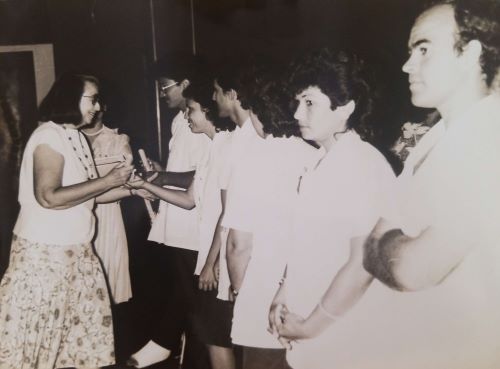 Hours before she had visited the Shoe Factory, in the land of Majibacoa, and suggested models and alternatives to face the Special Period with creativity, since the lack of resources had to be faced with the desire to create so that men, women and children felt comfortable with their shoes.
Hours before she had visited the Shoe Factory, in the land of Majibacoa, and suggested models and alternatives to face the Special Period with creativity, since the lack of resources had to be faced with the desire to create so that men, women and children felt comfortable with their shoes.
IN MEMORY, ALWAYS
Isabel Reyes Rosado does not speak about Vilma in the past tense, she uses verbs in the present tense and she assures that the same issues that brought the heroine several times to the province are still a commitment of the FMC in the territory, because no facet of the feminine becoming is alien to the organization, and each stage has its characteristics and challenges.
Many years of work guarantee their membership within the Provincial Secretariat of the Federation, Vilma's route in Las Tunas has become a very own purpose, to which she returns, from time to time, to continue adding anecdotes.
She comes to Las Tunas in many occasions, especially in the 90s," says Isabel. She comes to the eight municipalities and always exchanges with the federated ones from the simplicity and the example. To the government official, she bequeaths us very valuable advices, since it is required of empathy to help the women in the most singular and personal questions of their life. We learned from Vilma the ability to put ourselves in the place of others.
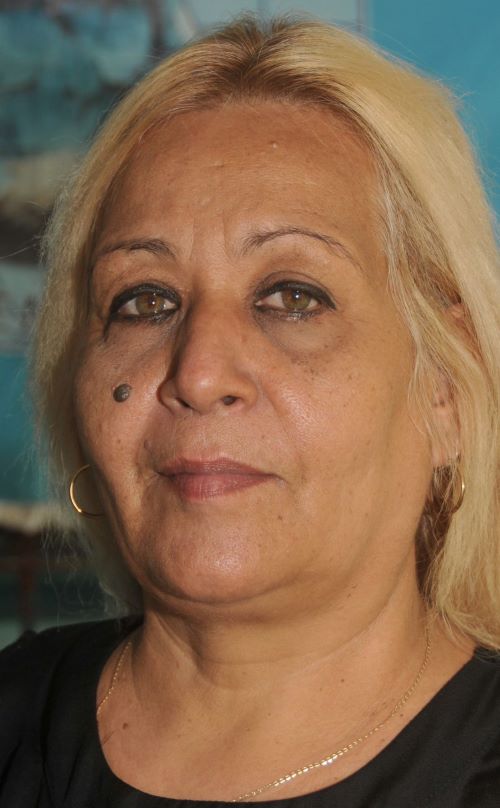 "In the head town, for example, she visits the Amiguitos del Minint childcare center, but she not only shows up at the site, but also goes to learn about the labor collective, the facility, to find out how she could help, how to improve the conditions of the workers. On that occasion, she arrived loaded with toys to donate to the children."
"In the head town, for example, she visits the Amiguitos del Minint childcare center, but she not only shows up at the site, but also goes to learn about the labor collective, the facility, to find out how she could help, how to improve the conditions of the workers. On that occasion, she arrived loaded with toys to donate to the children."
"She also goes to Cerámica Vajillera, acknowledging its good performance; and to the Guevara hospital. From that meeting, she keeps the anecdote that she gave six baby strollers to newborn children; she talked to the patients, and she qualified the day with the people's affection for her, the deference to the woman who was a guerrilla and now took care of the Cubans."
"Likewise, she is remembered in the Home for the Physically Handicapped, in the Maternal Home of Buena Vista; some of our federated veterans even remember her in the inauguration of the Women and Family Orientation House, where she gives a conference about the possibilities and alternatives for the attention, help and guidance to the different families."
Isabel transmits the memory of the Vilma that is always beating in the federated of Las Tunas. Her teachings are not left in the past, because she is still fighting old battles that have only changed scenarios.
In any corner of the province, in the heat of a tobacco stalk or in pig centers, when they talk about gender equality, they remember the demands of Vilma in her route through Las Tunas, that reunion that each anniversary makes her presence closer and more tangible.





